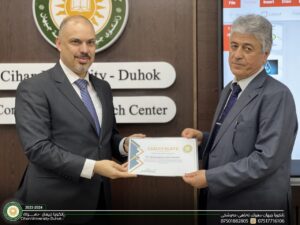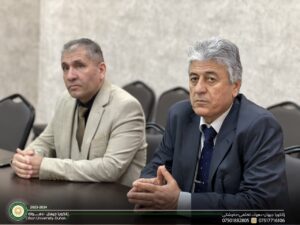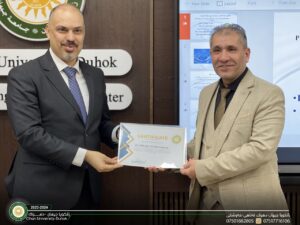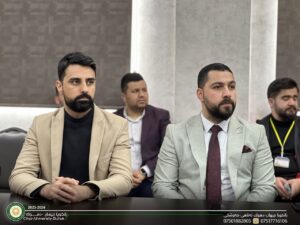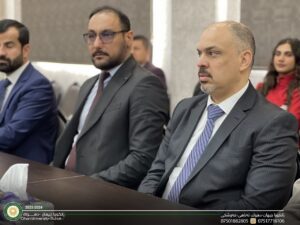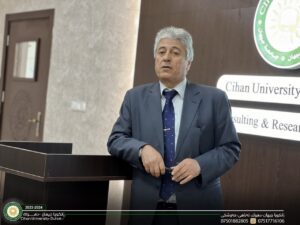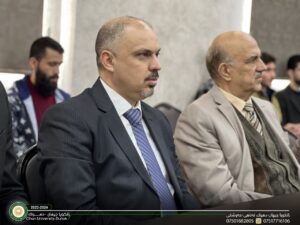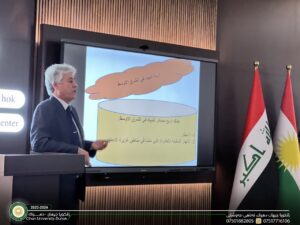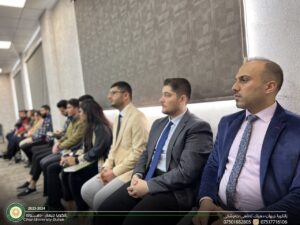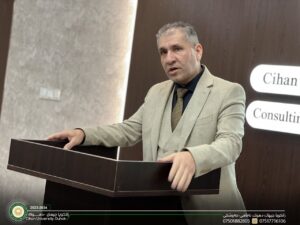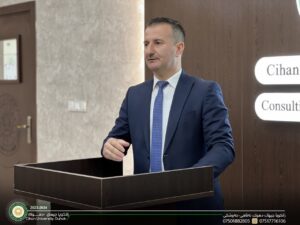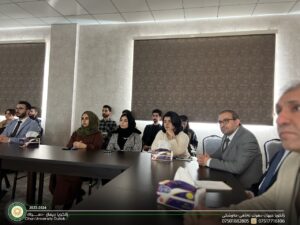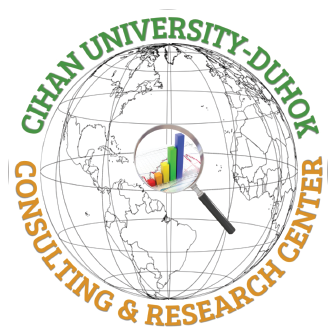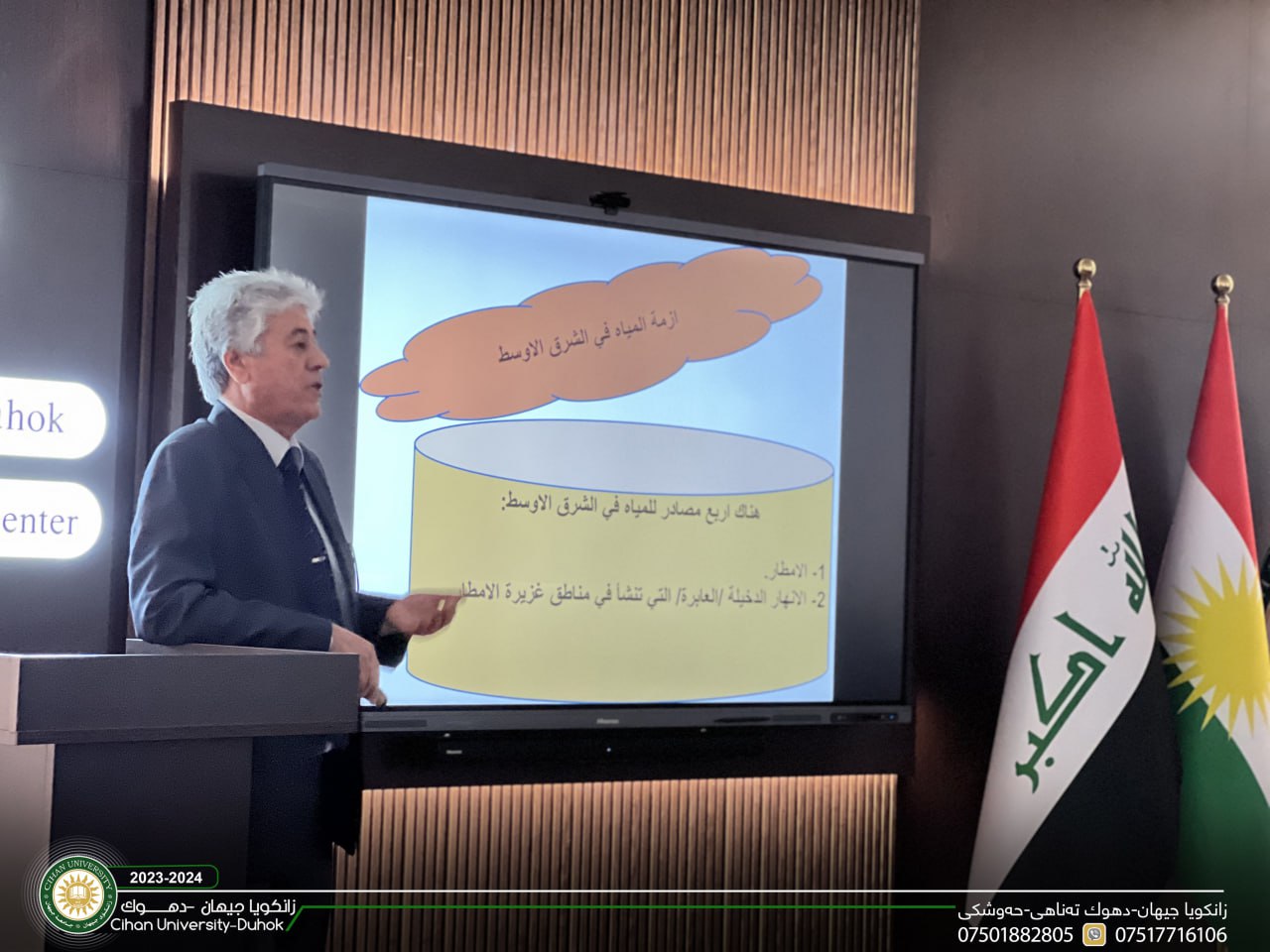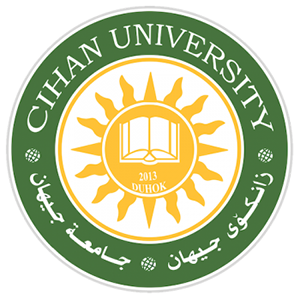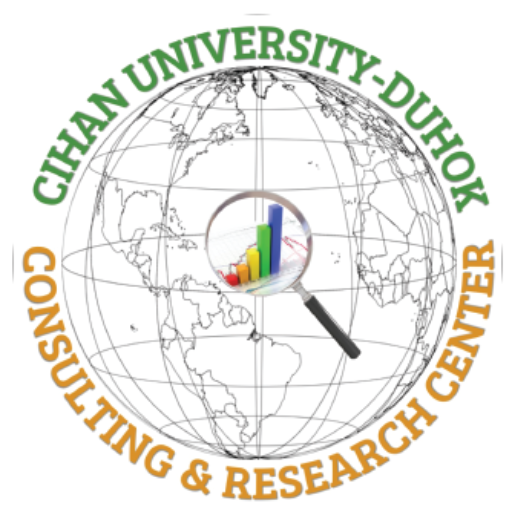Consulting & Research Centre at Cihan University – Duhok held a workshop on Sunday, 25 Feb 2024 at CRC Hall at our University, entitled “Water crises in the Middle East from a Geopolitical and biological perspective”.
🎙️Hosted by the speakers:
– Dr. Zeiad Abdulaziz Yousef, Faculty of Humanities Department of Geography, University of Duhok.
– Dr. Mervan Yousif Huseyin, Department of Medical Microbiology, Cihan University – Duhok.
Dr. Zeiad initiated a discussion regarding the water crisis in the Middle East, particularly focusing on the water conflict between Iraq and Turkey. He emphasized that while the conflict over oil has significantly influenced the region’s dynamics for decades, the potential for conflict over water could be even more severe due to its paramount importance and indispensability to life. Quoting the verse “And We made from water every living thing. Will they not believe?” he underscored the fundamental significance of water.
Recognizing the criticality of early awareness regarding water’s importance and the impending conflicts surrounding it, Dr. Ziad stressed the potential impact on regional security. Proper preparation, involving significant effort and sacrifices, could pave the way for a secure and sustainable future. Conversely, ignorance regarding this pressing issue could exacerbate difficulties for the region.
In the Middle East, water sources primarily comprise rain, transient rivers originating from regions with heavy rainfall, aquifers, and desalinated water in areas inaccessible to foreign waterways. The increasing demand for water exacerbates scarcity, leading to conflicts among riparian countries, such as Egypt and Ethiopia, Egypt and Sudan, Turkey, Syria, and Iraq, Israel and Jordan, and Iraq and Iran, among others.
Turkey asserts absolute sovereignty over water within its territory, including river water, maintaining the right to undertake projects for utilizing these waters without restrictions, even if such actions adversely affect other countries’ interests. In contrast, Iraq adheres to principles of international law, considering the Tigris and Euphrates rivers as international waters according to the United Nations definition.
Dr. Mervan delved into the intricacies of the workshop’s second phase, which revolved around the critical theme of ensuring access to potable water and the implementation of water desalination projects, all viewed through the lens of biology. In this segment, Dr. Marwan provided a comprehensive overview of the challenges associated with water scarcity and the increasing demand for clean water sources, particularly within the context of Iraq and the broader Arab region.
Highlighting the pressing need for innovative solutions, Dr. Marwan shed light on the transformative potential of water desalination initiatives. Drawing upon the experiences of countries like Saudi Arabia, where significant strides have been made in desalination technology, he emphasized the importance of leveraging such expertise to address water scarcity concerns effectively.
Furthermore, Dr. Marwan underscored the relevance of localized examples, including those from Jordan, notably Amman, to illustrate the practical applications of desalination projects within the region. By exploring these case studies, workshop participants gained insights into the diverse approaches and challenges associated with implementing water desalination initiatives across different geographical contexts.
In advocating for proactive measures to combat water scarcity, Dr. Marwan emphasized the imperative for sustainable water management practices. He highlighted the interconnectedness between water resources, ecosystem health, and human well-being, underscoring the need for holistic approaches that prioritize environmental conservation alongside meeting the growing water needs of communities.
Overall, Dr. Marwan’s presentation served as a catalyst for stimulating dialogue and collaboration aimed at developing innovative strategies to address water scarcity challenges in Iraq, the Arab region, and beyond. Through knowledge-sharing and cross-sectoral partnerships, participants were encouraged to explore new avenues for sustainable water resource management, ultimately fostering resilience and prosperity for future generations.
During the session, participants engaged in numerous interactive inquiries, discussions, and contributions.
